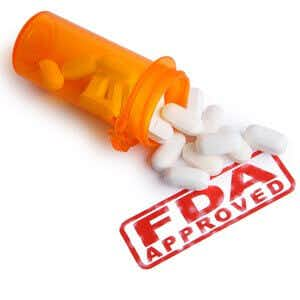
Everyone, it seems, wants new drugs faster. Obviously, the pharmaceutical industry wants the FDA to approve its new drugs faster. The sooner a company gets a green light to market a new medication the quicker the money starts flowing in. Physicians often like new treatments, especially if the old ones aren’t that effective or come with lots of side effects. And patients like the idea of new drugs because they perceive them as shiny new things that may be better than previous treatments. Commercials on TV certainly reinforce to that message.
How Good is the FDA at Following up on New Drugs?
An article in the New England Journal of Medicine (Sept. 21, 2017) titled “The Fate of FDA Postapproval Studies” questions the FDA’s oversight. Prior to 2007 the FDA had very little authority to require drug companies to perform safety studies after new drugs were approved. All the feds could do was seek a “commitment” to perform post approval research. If a pharmaceutical manufacturer chose to ignore the commitment, there was no regulatory authority to spank the company in question.
Reflux Drug Reglan (metoclopramide) & A Black Box Warning:
Perhaps that is why it took so long for the FDA to issue warnings about brain damage associated with the GI drug metoclopramide (Reglan). This medicine was approved in 1979 for gastroesophageal reflux disease (GERD).
It took the FDA roughly 30 years to issue a black box warning about a severe neurological drug complication called tardive dyskinesia (TD). The FDA now warns that TD is:
“a syndrome of potentially irreversible and disfiguring involuntary movements of the face or tongue, and sometimes of the trunk and/or extremities.”
FDA Slow to Require Levaquin (Levofloxacin) Alert:
Fluoroquinolone antibiotics like levofloxacin, ciprofloxacin (Cipro) and moxifloxacin (Avelox) have also been been around for decades. Cipro has been on the market for 30 years. In 2016 the FDA issued this warning:
“The U.S. Food and Drug Administration is advising that the serious side effects associated with fluoroquinolone antibacterial drugs generally outweigh the benefits for patients with acute sinusitis, acute bronchitis, and uncomplicated urinary tract infections who have other treatment options. For patients with these conditions, fluoroquinolones should be reserved for those who do not have alternative treatment options.
“An FDA safety review has shown that fluoroquinolones when used systemically (i.e. tablets, capsules, and injectable) are associated with disabling and potentially permanent serious side effects that can occur together. These side effects can involve the tendons, muscles, joints, nerves, and central nervous system.”
Millions Exposed for Decades While the FDA Flounders:
The point we are making is that it can take a very long time for the FDA to alert physicians and patients to serious, sometimes irreversible drug complications. Tens of millions of Americans have been exposed to potential side effects that were not in the original prescribing information.
In 2007 Congress gave the FDA more authority to require drug companies to complete post-approval safety studies. Instead of a lick and a promise, the agency could actually demand follow-up research. How good is the FDA’s track record regarding new drugs?
The study in the New England Journal of Medicine suggests that there is quite a lot of room for improvement. The researchers found that 20 percent of approximately 600 trials required in 2009 and 2010 had never been started. Another nine percent were delayed.
The FDA asked the maker of Suboxone if the drug causes a particular heart problem. The trial was to have been completed in six years, but as of July 2017, the authors could not ascertain whether a final protocol had been submitted and approved.
Another study was to have been on a lower dose of the multiple sclerosis drug fingolimod. The manufacturer says it has had trouble recruiting study subjects. Despite that, it has managed to sell almost $3 billion of the drug. The researchers note:
“The slow, irregular pace of postapproval studies contrasts starkly with the short, rigid deadlines and other shortcuts used to speed marketing approval.”
They go on to suggest that:
“…the FDA could do more to ensure that sponsors meet post-approval deadlines. Only half the studies established in 2009 and 2010 had been completed by the end of 2015, and some companies even failed to submit required annual status reports…
“The FDA could use its FDAAA-established power to impose fines or other penalties on sponsors that fail to meet deadlines. To our knowledge, it has never imposed such fines.”
The FDA’s Response RE: New Drugs and Post Approval Research:
The FDA responded to this criticism by stating that the analysis didn’t take into account revised timeframes and justifiable delays. The FDA staffers noted in the same issue of the New England Journal of Medicine that:
“We think that it is reassuring that as of fiscal year 2015, a total of 88% of postmarketing requirements overall and 89% of FDAAA postmarketing requirements were progressing according to their original schedules.”
The FDA did admit that is has never fined a drug company for failing to follow up on post-approval requirements. Without that bite, we feel that our drug watchdog has a pretty weak bark.
What’s your take? Are you interested in fast FDA approval of new drugs? How important are postapproval safety studies to you? Please take a moment to add your thoughts to the comment section below.

